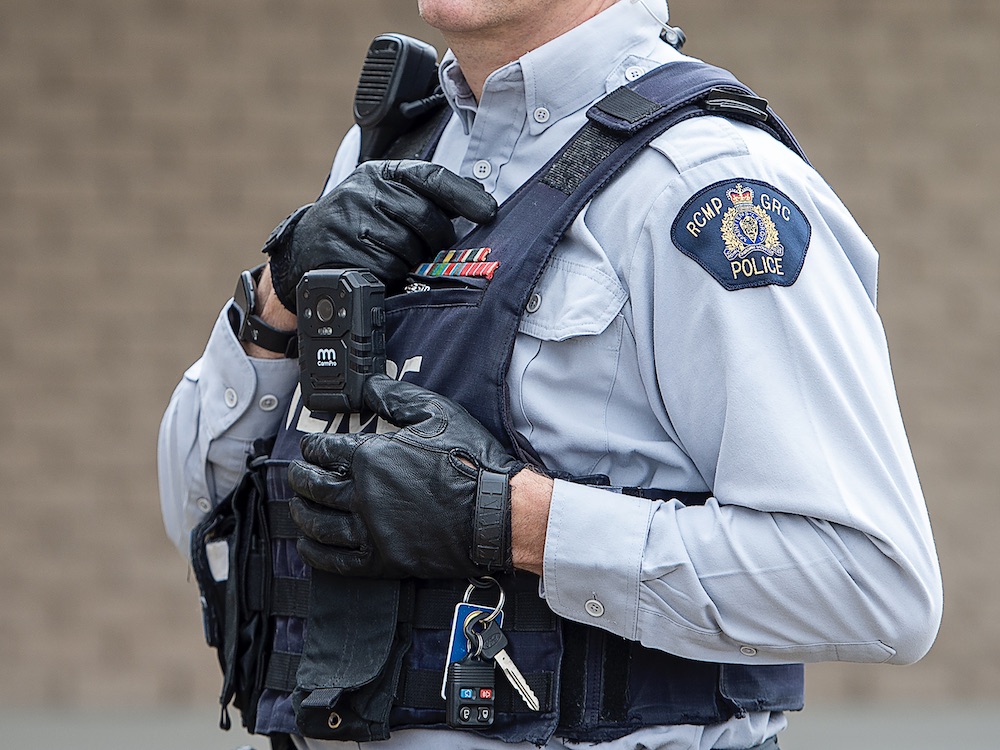In January 2024, the Vancouver Police Department will begin its six-month pilot project of deploying body-worn cameras, or BWCs.
The fact that the VPD and Vancouver Police Board have already committed to adopting BWCs with plans to equip all frontline officers by 2025 makes the pilot seem rather pointless.
And it throws into doubt the usefulness of virtual town hall meetings hosted by the VPD concerning the body camera pilot, including one being held today. At today’s virtual meeting no live back and forth will be allowed. The force will only be accepting and responding to emailed queries, so whether the event meets the definition of a town hall is up for debate.
Still, here are some key questions the Vancouver Police Department and police board should be made to answer, given the research on body-worn cameras.
1. The VPD claims body cameras will create more safety, accountability and transparency for their officers’ actions. Really, how?
Vancouver’s police department pronounces, “We believe the cameras will strengthen public safety, and enhance transparency, trust and accountability in interactions between the police and the public.”
But research is inconsistent regarding the effect of BWCs on use of force and citizen complaints against the police.
Some findings reveal that body cameras do reduce police use of force, while other studies show little effect. Researchers for one study were puzzled to find an increase in force used after BWCs were introduced.
2. Does the VPD admit body-worn cameras are not truly objective?
The VPD body camera pilot project followed the homicide of Myles Gray. In 2015, Gray was involved in a confrontation with police and was violently beaten by multiple VPD officers. The officers were the only witnesses, and none were charged for Gray’s death.
It is assumed that BWC footage is an objective witness; however, it can be quite the opposite. When police are otherwise videotaped — with a dash camera for example — they can be seen in the frame. But that’s not the case for BWC footage.
Therefore, evidence suggests, people who view BWC video of an incident when compared with a dash camera recording of the same incident are less likely to assign blame to a police officer.
3. Who will be able to see body camera footage?
According to the VPD body camera guidelines, “Only the officer who took the footage and other designated staff with approval can view the video,” whereas those recorded must apply for footage through a freedom of information request, a process subject to lengthy delays.
The practice of permitting police to view body camera footage has been criticized by the American Civil Liberties Union because it “enables lying.” As the ACLU noted, “If an officer is inclined to lie or distort the truth to justify a shooting, showing an officer the video... allows the officer to lie more effectively, and in ways that the video evidence won’t contradict.”
4. Why will police be able to turn off their cameras?
VPD officers can use their individual discretion to turn off their cameras, which invalidates police accountability claims. How the public can expect to hold officers accountable for misdeeds if they are allowed to turn off their cameras remains unclear.
5. Can we trust footage that can be manipulated by the police?
Any BWC footage that is used in court proceedings will have to be blurred and portions of the video redacted, as noted by the VPD. In other words, all body camera video shown will always be manipulated and edited by police, thus complicating transparency concerns.
6. What’s the true cost and is this really a good way to spend the money?
In December 2022, Vancouver city council initially approved the BWC pilot program at a cost of $200,000. However, as noted in a November police board report, the projected costs of the pilot have increased and the city now intends to spend $307,000.
Once the BWC program is fully implemented, it will cost the city and its taxpayers millions of dollars annually. This means an indefinite expansion of the VPD budget, all for the benefit of ambiguous claims of accountability and transparency.
Body cameras may produce some positive benefits for police services such as enhanced investigation and evidence collection, as well as the potential for more efficiency in complaint resolutions.
The technology may also provide the police watchdog agency — the Independent Investigations Office — with greater evidence and time savings for when they invoke their investigative mandates.
How can we be certain that the high and ever-increasing costs of BWC technology justify these potential benefits?
Given that research shows that investing funds in social welfare programs such as affordable housing is a bona fide crime reduction strategy enhancing public safety, might the money for body-worn cameras be better spent elsewhere?
Without the VPD clearly explaining how BWCs will strengthen public safety and enhance transparency, trust and accountability in interactions between police and the public, how can the public fully support this multimillion-dollar annual investment on the basis of vague police claims for a technology that mostly benefits police in justifying or excusing their actions? ![]()
Read more: Rights + Justice, Municipal Politics
















Tyee Commenting Guidelines
Comments that violate guidelines risk being deleted, and violations may result in a temporary or permanent user ban. Maintain the spirit of good conversation to stay in the discussion and be patient with moderators. Comments are reviewed regularly but not in real time.
Do:
Do not: